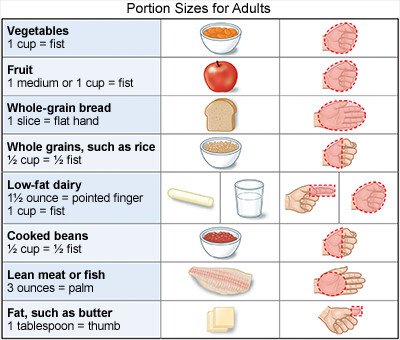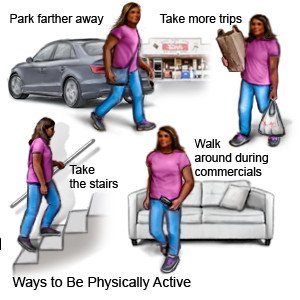Epiploic Appendagitis
Medically reviewed by Drugs.com. Last updated on Apr 6, 2025.
What is epiploic appendagitis?
Epiploic appendagitis is a condition that causes severe abdominal pain. The condition develops when blood cannot flow to small pouches of fat on your large intestine.
 |
What increases my risk for epiploic appendagitis?
- Being male
- Obesity
- Strenuous exercise
- An abdominal hernia
- A condition such as appendicitis (inflamed appendix) or diverticulitis (inflamed pockets in the colon)
What are the signs and symptoms of epiploic appendagitis?
- Pain, usually on the lower left side of the abdomen that may come and go
- Pain that is worse when you cough or breathe deeply
- An area of the abdomen that is tender to the touch
- Rarely, fever, nausea, vomiting, diarrhea, or loss of appetite
What are the types of epiploic appendagitis?
- Primary means the blood supply to the pouches is cut off. This may be from a twisted area that pinches off blood vessels. Blood vessels may instead collapse or get a blood clot. These block the blood flow to the pouches.
- Secondary means the colon or tissues around it are infected. Common causes include appendicitis or diverticulitis. Inflammation changes the blood flow and causes pain.
Drugs used to treat this and similar conditions
Tylenol
Tylenol is a pain reliever and a fever reducer used to treat many conditions such as headaches ...
Dilaudid
Dilaudid (hydromorphone) is a narcotic pain reliever used to treat moderate to severe pain ...
Omvoh
Omvoh is used to treat moderate to severe ulcerative colitis or Crohn's disease in adults. This ...
Qutenza
Qutenza patches are used to treat neuropathic pain associated with postherpetic neuralgia and ...
OxyContin
OxyContin (oxycodone) is an opioid pain reliever used to treat moderate to severe pain. Includes ...
Percocet
Percocet (acetaminophen and oxycodone) is used to relieve moderate to severe pain. Includes ...
Acetaminophen/hydrocodone
The combination of hydrocodone and acetaminophen is used to relieve moderate to severe pain ...
Hydrocodone
Hydrocodone (Hysingla ER and Zohydro ER) is used for around-the-clock treatment of severe pain ...
Oxycodone
Oxycodone is an opioid analgesic used to treat moderate to severe pain; it has a high potential for ...
Acetaminophen
Acetaminophen is a widely used pain reliever and fever reducer for conditions like headaches ...
How is epiploic appendagitis diagnosed?
Your healthcare provider will examine you and ask about your symptoms. Tell your provider when symptoms began. Describe anything that makes your symptoms better or worse. Your provider may use certain tests to rule out other conditions, such as appendicitis or diverticulitis. You may need any of the following:
- Blood tests may be used to rule out other causes of your pain.
- CT scan pictures will show certain signs, such as a thicker bowel wall than normal. Contrast liquid may be used to help the area show up better in pictures. Tell the healthcare provider if you have ever had an allergic reaction to contrast liquid.
How is epiploic appendagitis treated?
Epiploic appendagitis usually goes away without treatment. You may need any of the following if your pain continues:
- Medicines may be given to treat pain or a bacterial infection.
- Surgery may be needed to treat certain causes. You may need to have your appendix removed, for example. Surgery may also be needed if your symptoms become severe, continue, or happen often.
What can I do to manage or prevent epiploic appendagitis?
- Manage your weight. Ask your healthcare provider what a healthy weight is for you. Your provider can help you create a safe weight-loss plan, if needed.
- Eat a variety of healthy foods. Healthy foods include vegetables, fruit, low-fat dairy products, lean meats, fish, whole-grain breads and cereals, nuts, and cooked beans.

- Use portion control for food. Eat several small meals during the day instead of 3 large meals. Try not to eat large amounts of food at 1 time. Your healthcare provider or a dietitian can help you create healthy meal plans, if needed. Your provider can help you understand the correct portion sizes for each food.

- Be active throughout the day. Physical activity, such as exercise, can help you manage your weight. Physical activity can also help digestion. Your healthcare provider can help you create a physical activity plan. Try to stay active during the day. Even a few minutes of physical activity several times during the day will help.

When should I call my doctor?
- You have a fever.
- Your pain continues longer than 1 week.
- You are vomiting and cannot keep food down.
- You have chills, a cough, or feel weak and achy.
- You have trouble having a bowel movement, or you have diarrhea.
- You have questions or concerns about your condition or care.
Care Agreement
You have the right to help plan your care. Learn about your health condition and how it may be treated. Discuss treatment options with your healthcare providers to decide what care you want to receive. You always have the right to refuse treatment. The above information is an educational aid only. It is not intended as medical advice for individual conditions or treatments. Talk to your doctor, nurse or pharmacist before following any medical regimen to see if it is safe and effective for you.© Copyright Merative 2025 Information is for End User's use only and may not be sold, redistributed or otherwise used for commercial purposes.
Further information
Always consult your healthcare provider to ensure the information displayed on this page applies to your personal circumstances.
